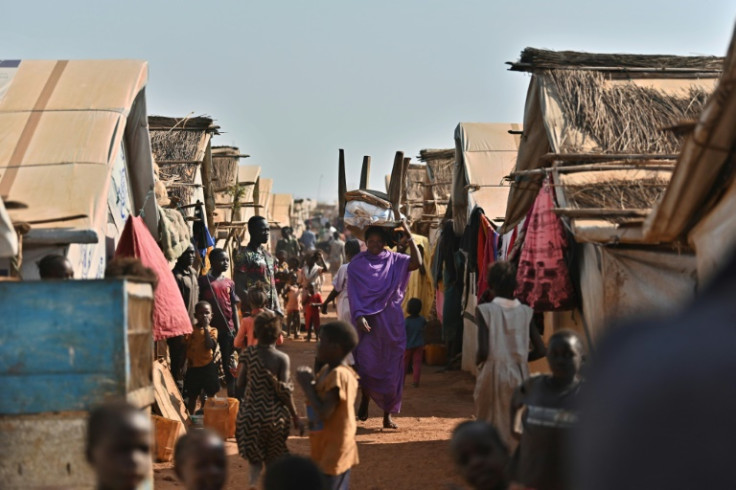Girls in South Sudan More Likely to Die in Childbirth than Finish School
The study highlights the grim reality that girls in the region face a higher likelihood of succumbing to childbirth complications than completing their education.

A recent cross-party report by MPs underscores the disproportionate impact of Foreign, Commonwealth & Development Office (FCDO) budget cuts on the most vulnerable populations, particularly in South Sudan.
The study highlights the grim reality that girls in the region face a higher likelihood of succumbing to childbirth complications than completing their education.
The FCDO, responsible for the United Kingdom's international development efforts, has seen substantial reductions in its budget in recent years.
While the government contends that these cuts are necessary for financial prudence, the consequences on the ground are alarming, particularly in countries already grappling with significant challenges.
South Sudan, a nation marred by conflict and economic instability, stands out as a poignant example of the repercussions of these budget cuts.
According to the report, girls in South Sudan face a stark choice between the risks associated with childbirth and the prospects of completing their education.
The statistics reveal a deeply troubling reality, where maternal mortality rates surpass the chances of girls finishing school.
The International Development Select Committee (IDC) of the House of Commons has expressed deep concern over the substantial reduction in aid spending since 2020, asserting that it has resulted in the loss of lives, particularly affecting pregnant women.
The abrupt cessation of funding, often occurring midway through ongoing programs, has also strained relationships with partner organisations, according to the committee.
In its findings, the parliamentary committee highlighted that nearly 300,000 women globally lost their lives during pregnancy and childbirth in 2020.
The IDC emphasised the urgent need for aid to address this critical issue, particularly in sub-Saharan Africa, where 70 per cent of these deaths occurred.
Additionally, the committee noted that 2.4 million children succumbed to mortality within their first year, with the majority of these deaths occurring in sub-Saharan Africa or central and southern Asia.
Sarah Champion, chair of the IDC, underscored the stark contrast faced by girls in South Sudan. She drew attention to the global context, mentioning that maternal deaths in the UK are currently at their highest level in two decades, with nearly 95 per cent of such deaths transpiring in less affluent countries.
An equality impact assessment, submitted to the Foreign, Commonwealth, and Development Office in July 2023, analysed the potential repercussions of government policy on disadvantaged groups.
It cautioned that the cuts in aid could result in nearly 200,000 more unsafe abortions in Africa.
Champion, who represents Rotherham as a Labour MP, expressed profound concern over the impact outlined in the equalities impact assessment.
The chair of the IDC said: "Last year's equalities impact assessment from the FCDO showed the horrifying numbers of women and girls, thousands upon thousands, who will once again face unsafe abortions and who will die in pregnancy or childbirth as a direct result of the UK's slashed aid spending.
"It is no good the new foreign secretary coming into parliament and declaring that the UK is still a global aid superpower when we are failing on funding commitments, failing to set or achieve meaningful targets on sexual and reproductive health and rights – failing women, girls and marginalised groups the world over," Champion continued.
The report further underscores the interconnectedness of health and education, illustrating how the lack of one exacerbates the challenges in the other.
Girls in South Sudan, faced with limited access to education, are often thrust into early marriages and pregnancies, perpetuating a cycle of disadvantage that hinders broader societal progress.
The consequences of reduced FCDO funding are not limited to South Sudan alone. Across various regions, similar stories of vulnerable communities grappling with the impact of budget cuts are emerging.
NGOs working on the ground report increasing strain on their efforts, with critical projects being scaled back or discontinued due to financial constraints.
As discussions around aid budgets continue, the plight of girls in South Sudan serves as a poignant reminder of the tangible and life-altering consequences of such decisions.
Advocates emphasise that investing in healthcare, education, and community development is not merely an act of generosity but a strategic imperative for fostering stability and prosperity in regions facing complex challenges.
© Copyright IBTimes 2025. All rights reserved.






















